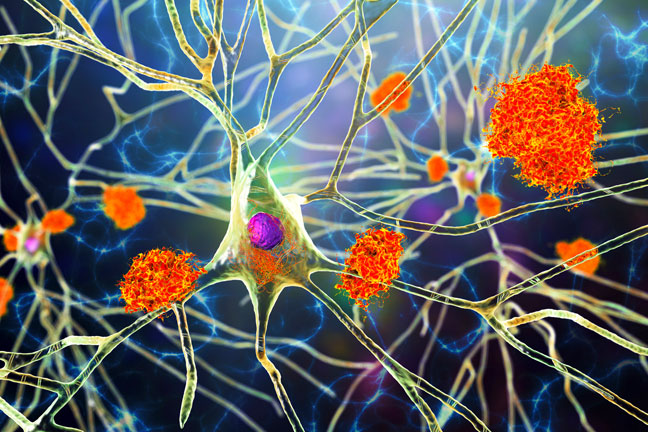December 8, 2022
Study offers a path to clinical solutions for skeletal fragility associated with Alzheimer’s
In an article published in the Journal of Bone and Mineral Research, researchers at Rensselaer Polytechnic Institute (RPI) Dr. Deepak Vashishth and Joan Llabre, a Ph.D. student in the Department of Biomedical Engineering, presented evidence of a link between Alzheimer’s, osteoporosis, and diabetes. While recent evidence showed loss of bone mineral density with Alzheimer’s disease, this is the first study to demonstrate the effects of the Alzheimer’s disease phenotype on bone quality and link changes in bone and amyloid formation in the brain.
Currently there is no way to measure amyloid load in brain. Modifications in bone can predict amyloids in the brain. Additionally, the protein modifications in bone are caused by sugar and are commonly seen in diabetes and aging. This finding therefore provides a potential mechanism of links between diabetes and Alzheimer’s.
“The findings are the first proof we have that there is a relationship between these diseases,” said Deepak Vashishth, Yamada Corporation Professor and director of the Center for Biotechnology and Interdisciplinary Studies (CBIS) at RPI. “This conceptual framework can ultimately contribute to the development of clinical solutions to reduce Alzheimer’s disease-associated skeletal fragility, also seen with type 2 diabetes. All of these diseases have a greater prevalence in women, meaning research could have a major impact on some of the most pressing women’s health issues.”
Alzheimer’s disease is an irreversible and progressive form of dementia that affects over 50 million people worldwide. Osteoporosis – a disease marked by loss of bone – can occur at twice the rate in AD patients, regardless of gender. Skeletal fragility is a severe comorbidity of Alzheimer’s disease. “Considering the growing epidemic of Alzheimer’s disease, our results offer both increased understanding and a possible clinical approach for skeletal fragility seen with Alzheimer’s disease, and to monitor, manage, and possibly treat Alzheimer’s disease itself,” added Vashishth. This work was conducted in collaboration with Dr. Possidente and his colleagues at Skidmore College and funded by grants from the National Institute of Aging (Alzheimer’s Disease and Dementia Related Research and Predoctoral Training Programs).

